Muslim civilization enriches the world
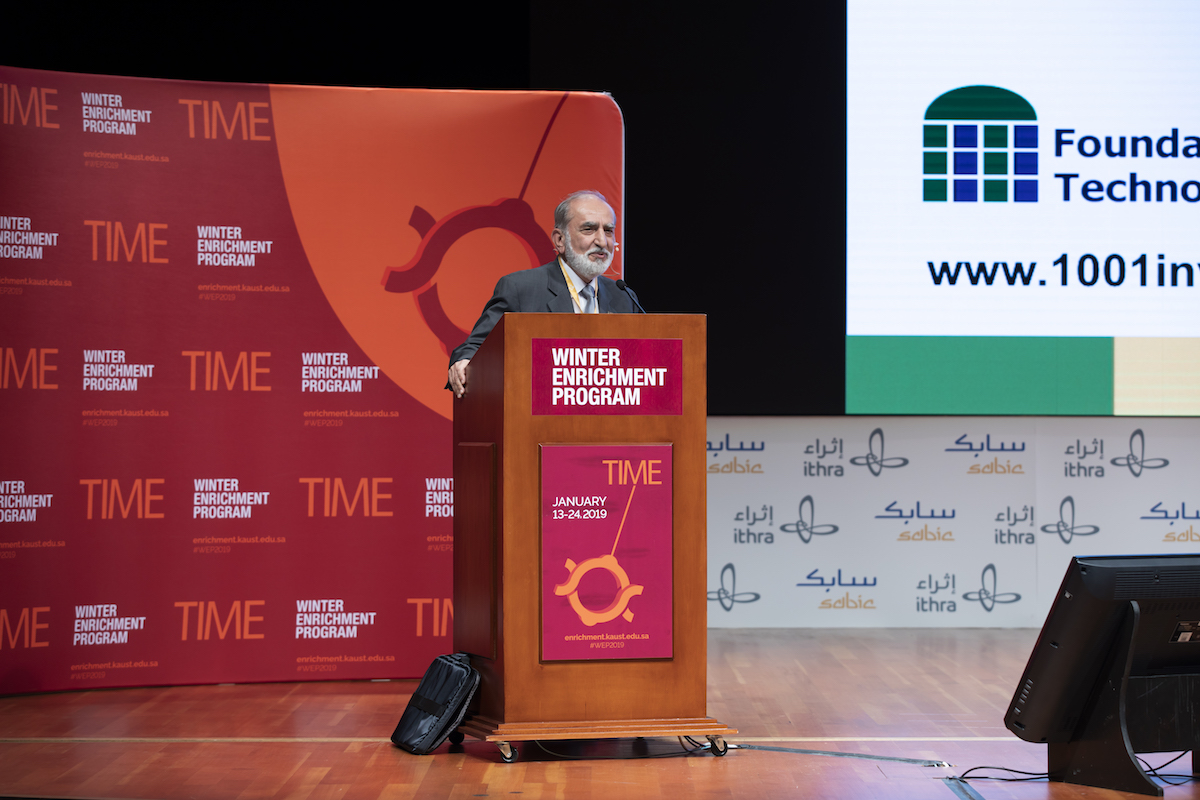
Salim T. S. Al-Hassani, emeritus professor at the University of Manchester, presents on the richness of Muslim civilization on January 22 on campus during the 2019 Winter Enrichment Program. Photo by Sarah Munshi.
-By David Murphy, KAUST News
Throughout history, horology, the study and science of time measurement, has played a crucial role in the development of humanity from the time of the ancient Sumerians and throughout Babylonian, Chinese, Egyptian, Greek and Indian civilizations.
The need to determine daily prayers times and measure the beginning and end of fasting periods has motivated Muslims throughout history to develop and improve previous time-measuring devices, such as astrolabes, clocks, sundials and water clepsydras.
On January 22, as part of the KAUST 2019 Winter Enrichment Program (WEP), Salim T. S. Al-Hassani, emeritus professor of mechanical engineering and professorial fellow in humanities at the University of Manchester and president of the British not-for-profit organization the Foundation of Science, Technology and Civilization (FSTC), shared his knowledge of the role played by Muslims in science and engineering.
Al-Hassani's WEP keynote lecture featured some of the greatest thinkers and inventions of Muslim civilization, including the early clocks of Muslim heritage—like the water clock that Caliph Harun al-Rashid gifted Charlemagne; the clock of Ibn al-Haytham; the elephant clock of Al-Jazari; the water clock of Al-Muradi; and the mechanical clock of Taqi al-Din.
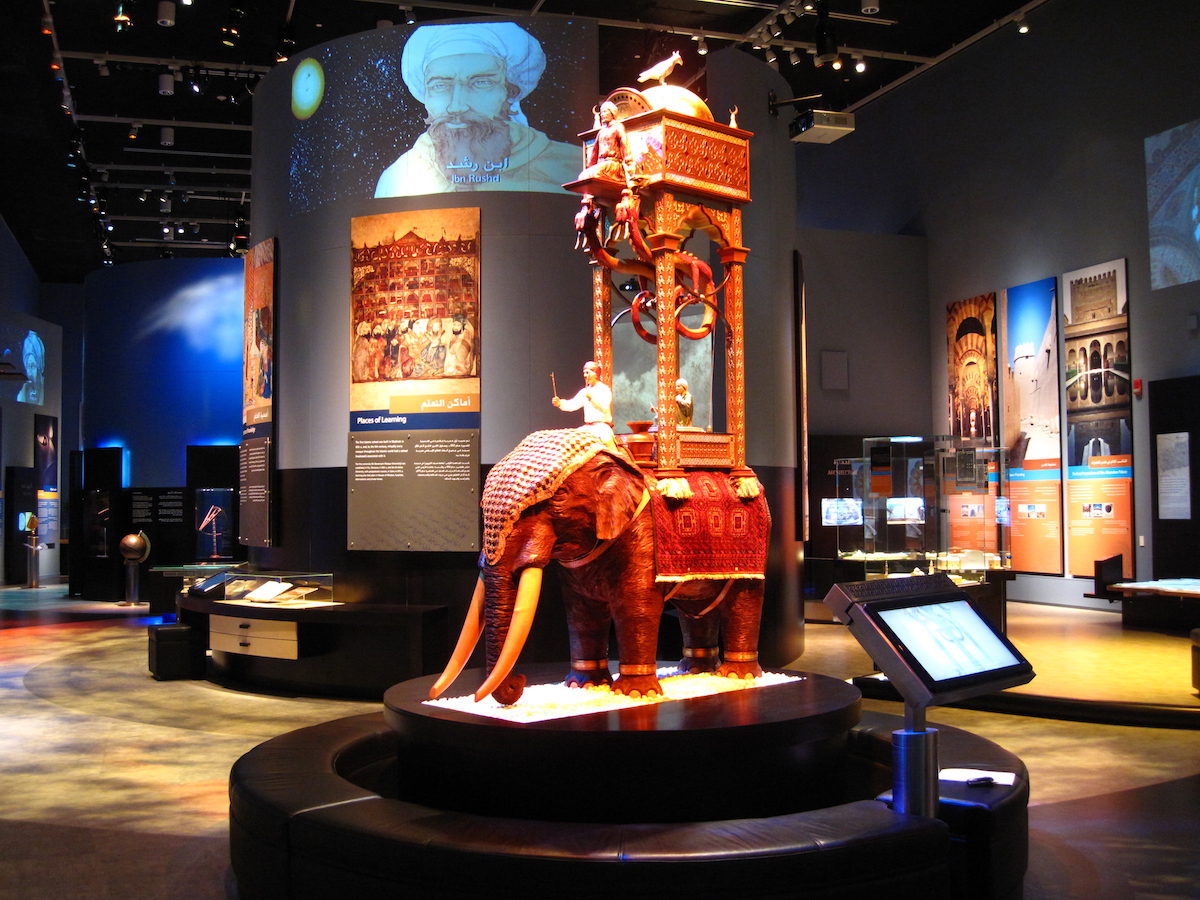
A reproduction of the famous elephant clock created by Muslim inventor, artist and engineer Al-Jazari during the Golden Age of Islam is on display in the KAUST Museum of Science and Technology in Islam on campus. File photo.
Cultural neglect
Al-Hassani also outlined what he feels is neglect shown towards the cultural, engineering and scientific contributions and impact of non-European cultures to humanity. His keynote aimed to inspire the audience to build a prosperous, sustainable future and create a society that celebrates the diversity of humanity.
Over the past 20 years, Al-Hassani has sought to promote the cultural roots of science. During this time, he has attempted to fill the 1,000-year blank in our collective knowledge known in Western society as the Dark or Middle Ages.
It was during this time of cultural and economic stagnation in the West that the cultural, economic and scientific period called the "Islamic Golden Age" flourished in the Middle East and beyond. It is this window of time that continues to influence and inspire Al-Hassani's work today.
"My interest came in the neglect of the various contributions of various cultures—apart from the European culture. This subject is about the neglect I have noticed and has made me shift, make a major change, in my life when I...excelled in my engineering work," he said.
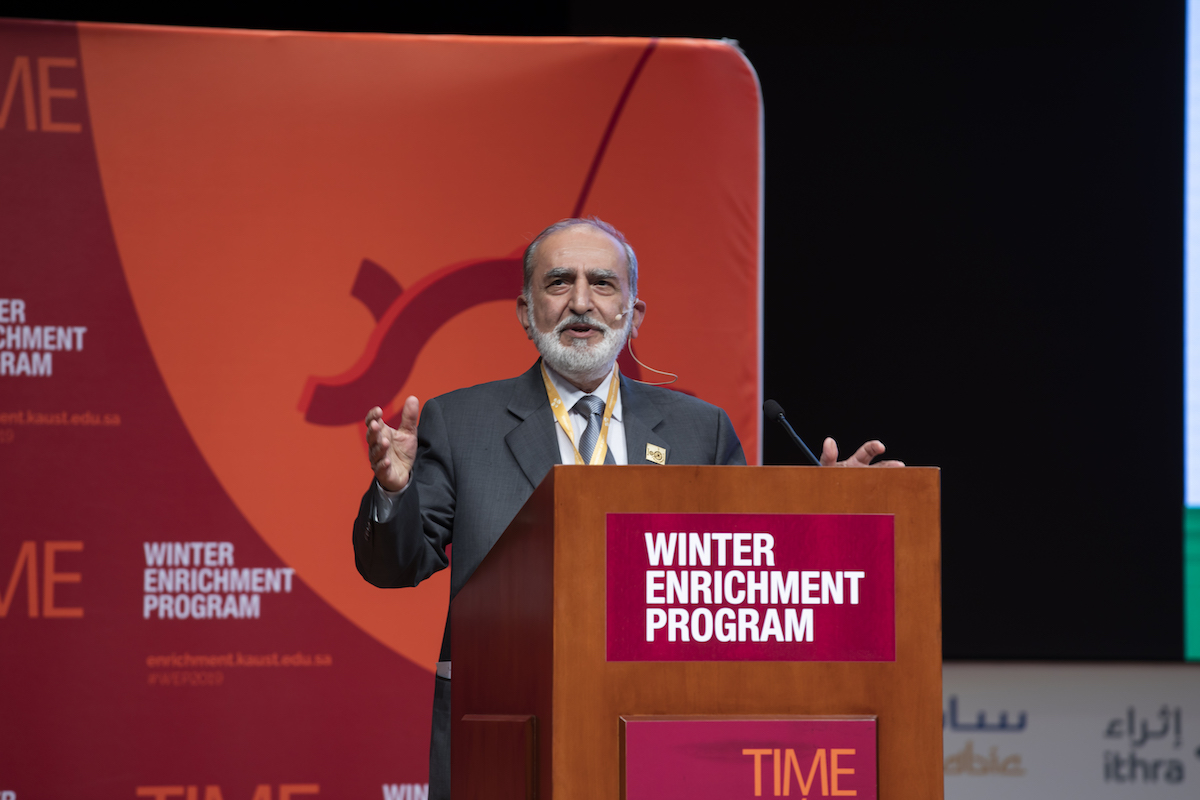
Salim T. S. Al-Hassani, 2019 Winter Enrichment Program keynote speaker, noted his work is inspired by the richness and importance of the Islamic Golden Age. Photo by Sarah Munshi.
"There is none—well almost no—Indian, Chinese or Muslim names, and that's really strange. 'Does that mean that these people didn't have any contributions to make?'—that was the question. So, to me, it was a really interesting subject. It was something where one can go into and produce something new, and it took [over] my life, and that's what brings me here," he said.
A question of fairness
Al-Hassani spoke about how a historical knowledge gap continuously manifests itself in how science and technology is taught in schools, particularly in the West. He drew attention to a trend of associating a scientific finding or invention with one name or society alone.
"You find that even in Europe, you don't have Europeans with Arabic names mentioned. And yet in that time—from the Romans to the Renaissance period—this is the time when we call Al-Andalus (711-1491) [or] Muslim Spain. Smack in the middle of the Dark and Medieval Ages, but there is no reference to it," he noted. "[I]t really is very sad because we are not being educated properly. It seems only one-sided."
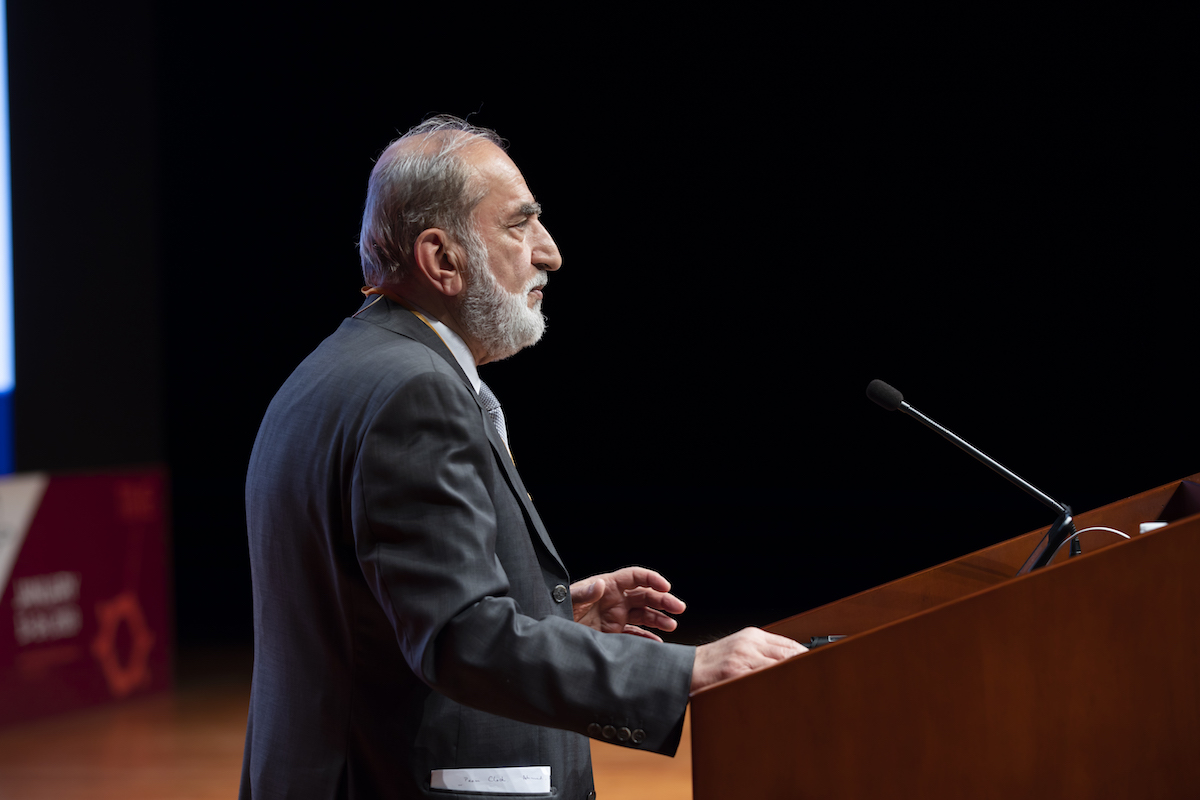
Salim T. S. Al-Hassani, emeritus professor at the University of Manchester, speaks on campus about the Golden Age of Islam on January 22 as part of the University's 2019 Winter Enrichment Program. Photo by Sarah Munshi.
"We [the FSTC] have developed a lot of courses in STEM subjects so that we can add enrichment to the professors and teachers of schools...You don't have to change the curriculum. You are not changing the subjects at all, but you make them interesting, and you link [them] with your own culture, whether you are in Arabia, or China, or South America, or Africa," he said.
"We wanted to promote this knowledge so that it become popular and is in the public mind so that people start respecting each other. There is a lot of science from around the world. We [humans] are creative by nature."
Higher aims
Al-Hassani is aware of the ability for KAUST to become another truly great Bayt al-Hikmah—or House of Wisdom—enriched by the diverse KAUST community.
"This is the KAUST community picture...when people come from different parts of the world, different ethnic backgrounds—all together. And they study and contribute...That is what I call a balanced education," he said.
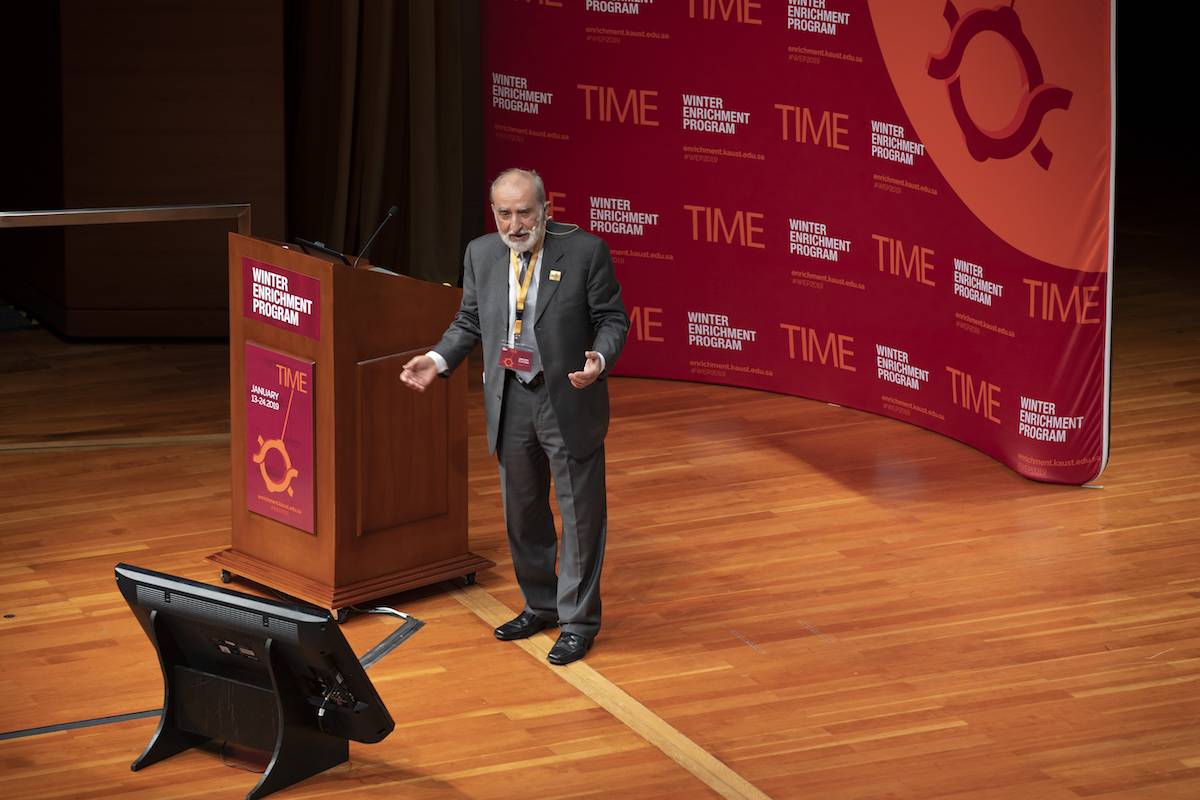
Despite originally working as an engineer, Salim T. S. Al-Hassani, 2019 Winter Enrichment Program keynote speaker, became passionate about the Islamic Golden Age and is now president of the British not-for-profit organization the Foundation of Science, Technology and Civilization. Photo by Sarah Munshi.
"You will get a job anywhere, but you should have a higher aim," he told the students present. "Just like Al-Khwarizmi, Fatima al-Fihri—all these great [thinkers]—Ibn Sina, al-Razi, Hasan Ibn al-Haytham. They [all] had higher aims."
Related stories:
- Our biological clocks
- How does the universe work?
- A race against time
-
KAUST presents 'TIME'-themed festival of science

